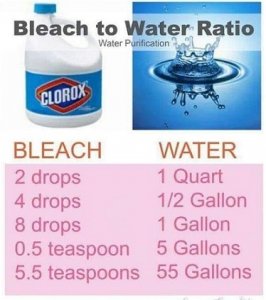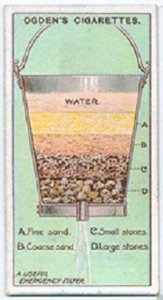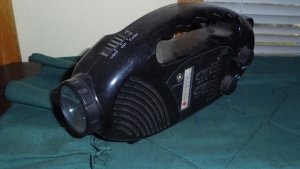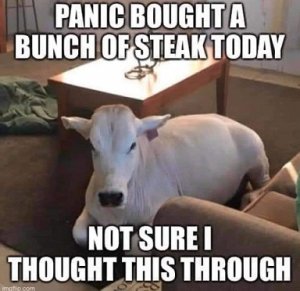I do have all that but the meds in my car as a "Get Home" bag including a tiny $24 Walmart dome tent. There's not much I can think of that would cause people to have to leave homes in our area. Tornadoes are our major threat and I live near my parents who have a three room basement. We're not near a nuclear power plant but a chemical spill is a possibility.
Water--as you covered above--is the most important emergency preparedness item. I keep a few bottles of water in my car at all times plus purification methods since we have an abundance of bodies of water in this area. A
GRAYL purification bottle is the best for drinking and will even filter viruses. Also have purification tablets and a Sawyer Mini filter (got that before the GRAYL but it still works and is small so I kept it.) A lot of people buy Life Straws, but the Sawyer Minis process more and are easier to use due to being able to put filtered water into a container instead of just drinking through the straw. Neither Life Straws or Sawyer Minis remove viruses.
This article goes into the physical progression of dehydration which shows the importance of water. Then think of what we need for cooking and hygiene needs ...it adds up to needing a good bit of potable water on hand and the means to purify more.
How Long Can A Person Survive Without Water
There's no reliable predictor of how fast dehydration would kill a person. Many survival blogs suggest that an average person can survive for somewhere from
two days to a week without liquids, but that's a rough estimate at best.
So how much water does a person need to lose before severe dehydration sets in? According to
2009 National Health Service guidelines in the United Kingdom, severe dehydration sets in when a person loses about 10 percent of their total weight to water loss — though that measurement is too difficult to use in practice.
But at up to 1.5 liters of water loss per hour on a hot day, that kind of dehydration can happen a lot faster than conventional wisdom suggests.
Once a person's water levels dip below a healthy amount, characteristic symptoms set in: thirst, dry skin, fatigue, light-headedness, dizziness, confusion, dry mouth, and speedy pulse and breathing...
Patients come in to the emergency room, "and they're fatigued, tired, sometimes dizzy — more when they stand up — [and] sometimes vomiting," Dickson told Live Science. "If [the dehydration] is really bad, they can be in shock, where they're cold and clammy, not responsive. It can also be that they just don't feel well, a generalized malaise."
As water levels drop inside the body, the liquid gets diverted to fill vital organs with blood, causing cells throughout the body to shrink ...As water leaches out of brain cells, Berns explained, the brain contracts and blood vessels within the cranium can burst.
Kidneys usually fail first among the organs and stop cleaning waste out of the shrinking blood supply... At that point, the other organs fail in a toxic cascade.





